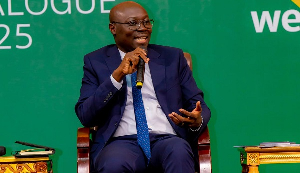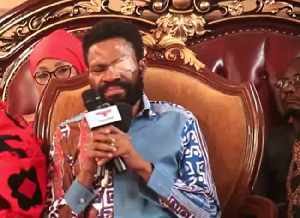?Is it always easier to strive to cross over to where the grass is greener than do anything to revive the parched grass where one stands??
On July 12, 2004, the New York Times ran an article which detailed the exodus of African healthcare professionals to rich countries. Many of us had written about this issue way before it was headlined in the New York Times, but my heart just sank seeing a picture of an emaciated child bunched up on a hospital bed with tubes running all over his body. And guess what? The nurse responsible for this child?s care was getting ready to leave for a better life in Britain.
I am yet to see a positive picture or read a good story about Africa from the foreign press, but as negative as this one seemed, the fact was inescapable. Most of us know we have run from our own countries and responsibilities as citizens for greener pastures in rich countries. The funny part in all this is how the rich countries project this issue to the rest of the world. Rich countries not only move quickly to take advantage of this cheap resource but are also very quick to create a ?Third World?, hide Africa in it and then ridicule us, further tainting the image of Africa in our own minds and the minds of the rest of the world . It is sometimes disheartening, if not humiliating to see Africa paraded like a continent, full of impotent idiots who never resisted a self-destructing bait.
To counter this image, I thought about Ghanaians who stay on the continent and still prosper against the odds. The industrious, self-sacrificing ones that stay on to create something out of parched grass. Those who will not sell their souls like Christ even if the whole world and its glory were laid at their feet. These are the real heroes of the continent. I know people who have made it in Ghana despite the hardship and only come abroad to broaden their view about the world. And these are not people who gained their wealth biting off some green grass on the greener side and bringing the green across to the parched grass to make it appear to be greener. These are people who saw the parched grass, envisioned that grass in green and doggedly tended it to fruition. All of us cannot abandon the continent in order to make it in life. Indeed, isn?t a hero one who braves all odds and risks his or her life for the sake of others?
Of course, my favorite Ghanaian hero of all times is still the late Esther Ocloo, who built a whole food canning business from a few jars of marmalade. The secondary school graduate who could not afford to go to a University in Ghana but made it to the pages of the New York Times. Our heroes are people who leave behind lasting legacies despite extraordinary challenges they encountered in life themselves. These people leave their part of the world a better place after they are gone, than the one they were born into. With their legacy, we can also lift our heads higher in world society and say, I come from the same land that she comes from.
Ghana has the resources, both human and material, but it takes self-sacrificing, ingenious people to stay on it and change it despite the fact that there may not be any financial rewards. If Africa could retain and nourish its trained and skilled human resources the same way it drains them out, it would truly be the envy of its neighbors. I will not ask the how-do-we-stop-this drainage question, because we all know the answer to that one but we definitely pay a price one way or another for moving to greener pastures.
We give up mortar and pestle pounded fufu and good soup for some processed gunk and a rich social life to become workaholics and recluses with electronic gadgets to entertain us. In the end, we give up ourselves, our souls in exchange for wealth. We never have both. And those of us who struggle abroad doing menial jobs and brag about our wealth when we visit our folks back home, shouldn?t we be ashamed of ourselves? Could it be that we encourage this brain drain when we paint a rosy picture of life abroad. Do we add that we are toilet cleaners, maids or third class citizens as illegal immigrants? Do we tell them about our pain and suffering even before we made it back home?
We build big elaborate mansions in Ghana but never live in it. We deceive ourselves into thinking someday we can ever live in Ghana in its condition. And since all our nurses and doctors, engineers, brilliant sons, daughters born and about to born and everyone else in between yearns to leave for greener pastures, then who will take care of us then even if we are able to eventually live in Ghana. And no matter what rights we claim to have in the greener pasture, our efforts did not make the grass green on this side before we arrived and so we never feel at home there anyway.
I once asked a friend who was visiting from Ghana if they would vote for a Ghanaian residing abroad if they came back to Ghana to help better the community in which they grew up, by representing them in government? The response was a sharp and unhesitant ?No.? No???
And here we are busting our brains thinking Ghana needs our help from the petty things that make everyday life so tedious and unbearable. After thinking this through, I came to the conclusion that community starts at the local level and most Ghanaians living abroad no longer quite fit in that local mold. Would I, the local Ghanaian then vote for a prodigal son or daughter of Africa either even if they meant well for me. That would be a mistake. I am not the least bit surprised to see why some of our folks back home have such a strong aversion to our message and vision for the continent. We often talk the walk, but ran away to better pastures when called upon to walk the talk. The real heroes are the ones who stay behind in the heat of poverty and hopelessness and strive everyday to hold the country together, when everybody else has abandoned it for greener ones. And the most prosperous person one who has both his soul and his wealth in the same place where once the grass seemed less green.



![New IGP, COP Christian Tetteh Yohonu [L] and immediate-past IGP, Dr. Akuffo Dampare New IGP, COP Christian Tetteh Yohonu [L] and immediate-past IGP, Dr. Akuffo Dampare](https://cdn.ghanaweb.com/imagelib/pics/140/14041582.295.jpg)











